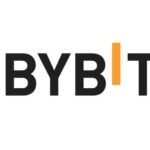Blockchain is a distributed ledger that stores data in a very secure manner across several nodes. Blockchain’s many advantages make it a highly effective weapon for combating governmental corruption, especially those that have to do with the immutability of data and records. However, the absence of well-considered legal frameworks and processes means that blockchain cannot be used alone to serve as a deterrent against crime. Governments are adopting digital advancements throughout the globe as a means to streamline their operations and reimagine how they interact with the residents.
In the age of the internet, individuals have higher standards for their governments, expecting more in terms of services and transparency. The public has strong and even unrealistic expectations that blockchain would streamline the provision of public services and increase confidence in the government. Blockchain might significantly improve anti-corruption initiatives, but a strong legal framework is needed. Following are the top three blockchain use cases to tackle government corruption.
Electoral Systems Based On The Blockchain
Governments are considering blockchain-based voting systems as a way to boost confidence and engagement in crucial democratic procedures, including voter security, voter identification integrity, poll accessibility, and voter turnout. Blockchain technology’s immutability, encryption, and lack of central authority may improve voting security and increase voter turnout. Since the technology offers end-to-end verification advantages, blockchain can be used to develop reliable electronic voting systems that maintain the fairness and privacy of voting schemes. On the other hand, electoral systems that are built on the blockchain may also pose some privacy issues that may lead to tampered votes, lost paper trails, and general election chaos. For this reason, the service must be delivered on a reliable and secure technological platform.
Disbursing Grants Through Blockchain
Millions of dollars are distributed yearly by different countries to support a variety of causes, including social aid, supporting education or welfare funds. Due to its complexity, lack of transparency, and inefficiency, this procedure usually leads to losing funds since several intermediaries and banking fees are involved. Implementing blockchain technology in grant disbursements can boost public trust and prevent illegal financial syphoning. A streamlined procedure, decreased cost, and fewer chances for money embezzlement might result from reducing the number of parties involved in grant awards and administration.
Implementation Of Blockchain In Public Procurement
Government officials are most likely corrupted by those in charge of public procurement. Many reasons contribute to this governmental procedure’s reputation as a breeding ground for corruption in developed and underdeveloped nations. The potential for corruption in procurement can be mitigated with the use of a blockchain-based method, which allows for independent verification of transactions without the need for intermediaries. As smart contracts are automated agreements, they will also contribute to greater objectivity and consistency, which will enhance participant and transaction accountability.




























